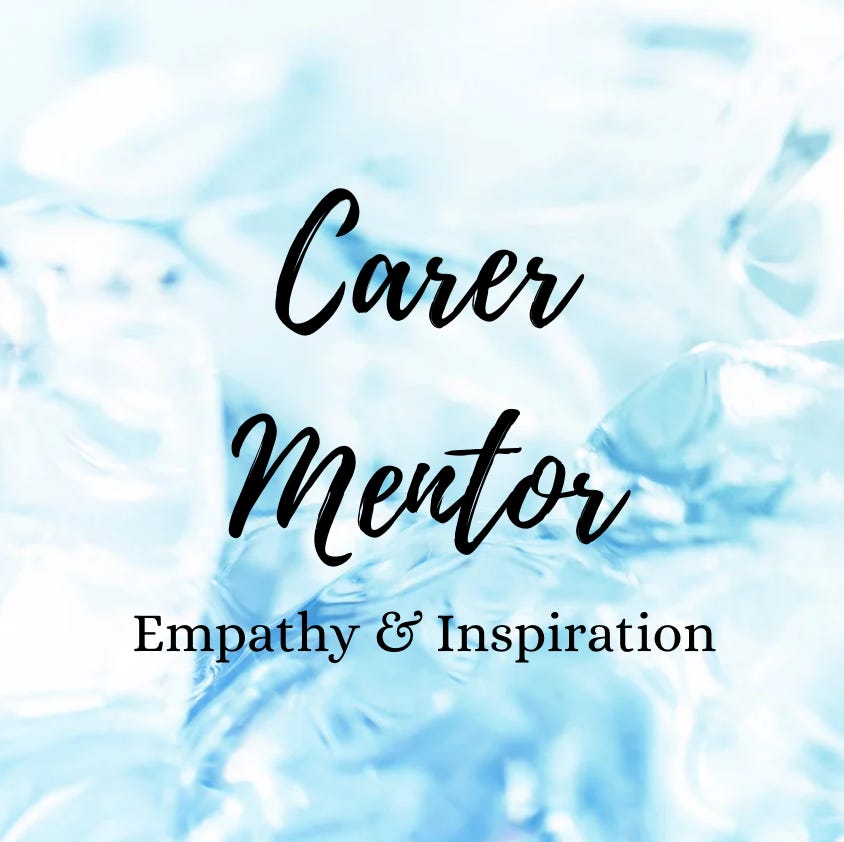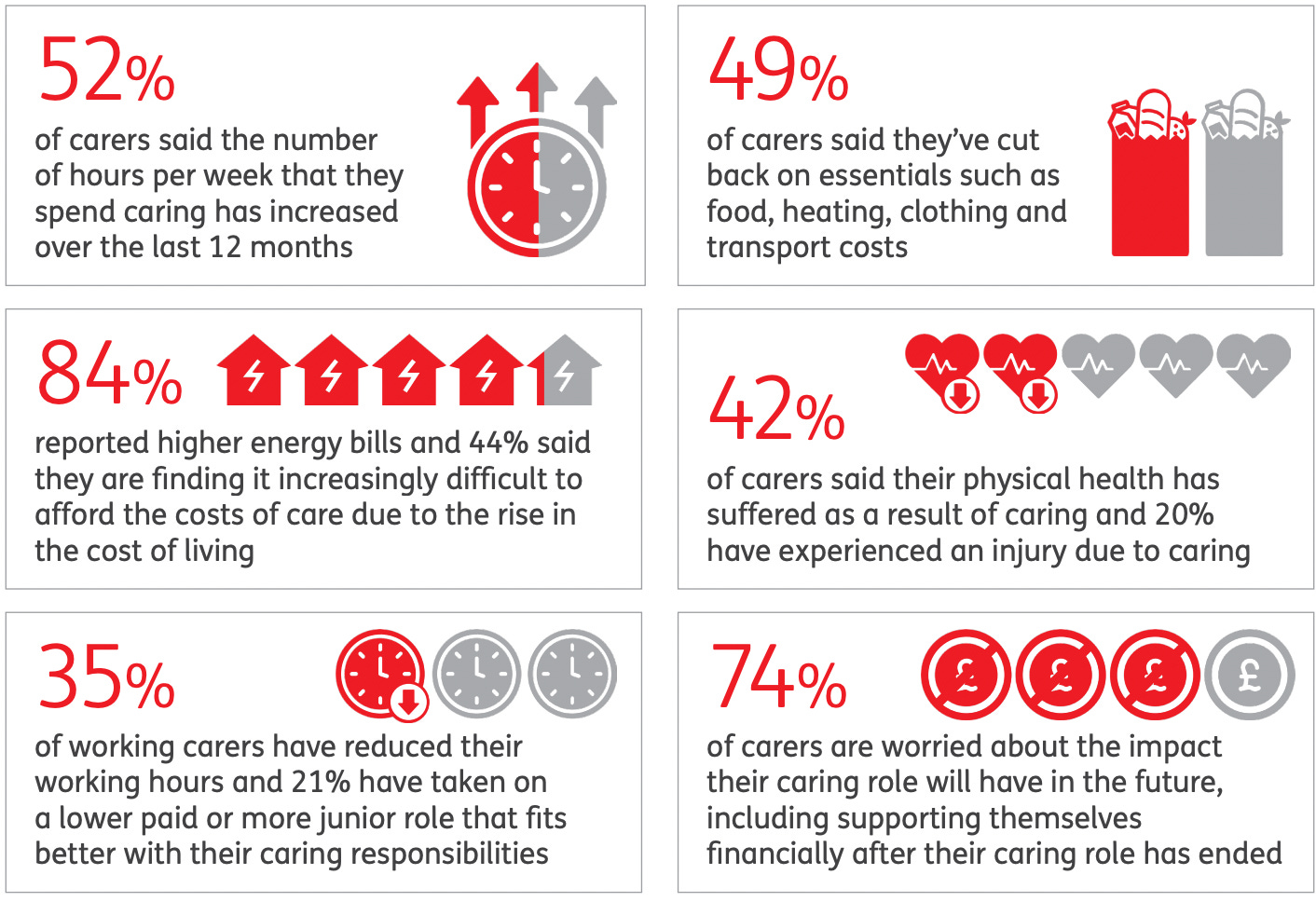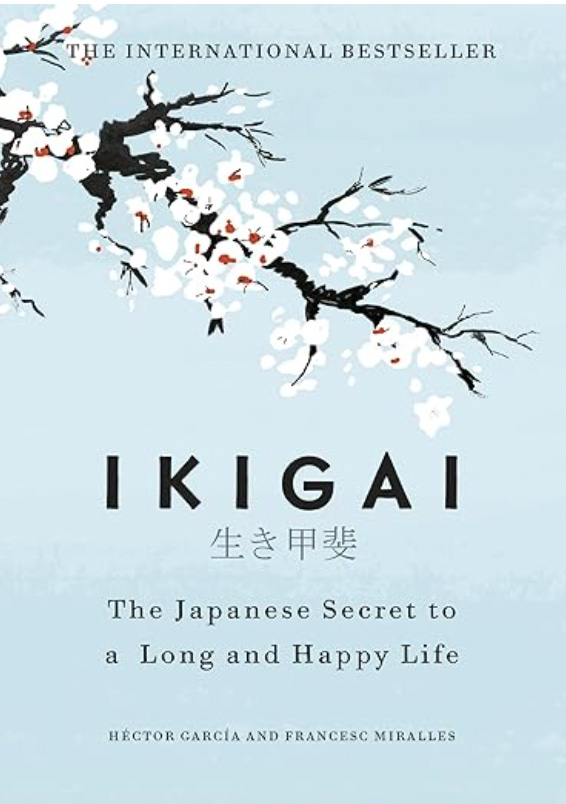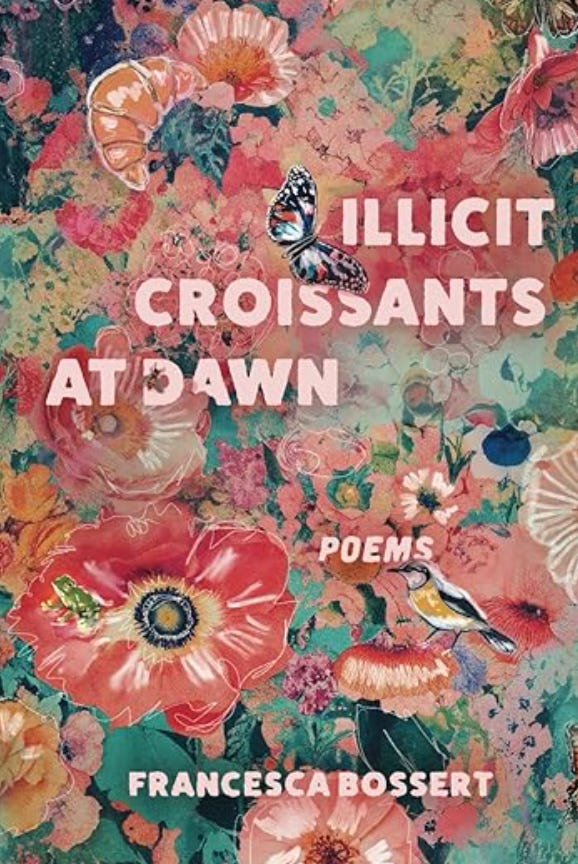Carer Mentor's October Roundup
October slides. Care-related discussions and discoveries.
Hello, Dear Readers. A warm ‘Welcome!’ to new readers. Geez, it’s been a busier month than I anticipated! I hope you’ve been managing to navigate all that October has brought you.
If you’re new to Carer Mentor, I recommend starting with this article: Who Started Carer Mentor and Why?
October slides
Do you or someone you know suffer from the “October Slide”? It’s not a medical diagnosis but a phenomenon linked to seasonal changes. A few friends with chronic illnesses have shared their experiences of worsening symptoms when summer transitions to autumn.
Some of the causes of the October Slide
Autumn brings several factors that contribute to the “slide” [this list is adapted from The EDS Clinic]:
Fluctuating barometric pressure: Atmospheric pressure changes increase pain, inflammation, and joint stiffness, particularly for people with arthritis.
Reduced sunlight and vitamin D: Shorter days mean less sun exposure, lowering vitamin D levels. Low vitamin D levels can cause increased fatigue, muscle pain, and brain fog. Putting our clocks back one hour can discombobulate our body clocks.1
Colder, drier air: The shift to colder temperatures and lower humidity can dry out the body’s mucus membranes in the nose and throat, making it easier for viruses like the common cold and flu to enter the body.
Worsening allergies and illnesses: Cold weather and more time indoors spread respiratory viruses like colds and flu more easily. Autumn allergens like ragweed worsen symptoms. And, please don’t forget COVID is still here! What you may think is the flu could be a COVID variant. Cases seem to be on the rise in the UK.
Increased stress: The school year starts, and the approaching holiday season creates stress, causing chronic condition symptoms to flare.
Work-stress: after summer holidays, there’s an increase in project activity, finalising budget plans and pushing work to ‘close the year strong.’ Increased workloads and meetings can strain work relationships or create tension between work and personal life. Frustrations and dissonance between goals and values can escalate.
Changes to routines: People are less active and follow different routines in autumn, affecting their physical and mental health and energy levels.
Seasonal affective disorder (SAD): Shorter, darker days trigger seasonal depression and worsen mood.
Some of the health conditions affected by the October Slide include
Dysautonomia, such as Postural Orthostatic Tachycardia Syndrome (POTS)
Fibromyalgia and chronic fatigue syndrome (ME/CFS)
Migraines and other neurological conditions
Vestibular disorders and vertigo
Long COVID
We’re extra careful when interacting with anyone because my mother is immunocompromised. Reminder: Anyone can transmit flu or COVID even if they don’t have symptoms. My mother and I had Covid and pneumonia in September - October, last year, after a family visit, which led to my mother’s hospitalisation.
To alleviate joint aches and pains due to rheumatoid arthritis and osteoarthritis, in these colder, damper days, I researched/purchased various ‘warmers’ for my parents. [Included in the ‘Caregiving hacks and tips’ article.]
To warm up hands and toes. Hothand’s warmers. I recommend putting them in a small pouch and avoiding direct contact with the skin if you’re sensitive or thin-skinned.
Slankets; blankets with sleeves. Amazon versions.
Heated Throws and overblankets: Dreamland’s heated throws and overblankets
Don’t forget: fingerless gloves and woolly hand muffs are good for someone sitting in a wheelchair, to keep both their hands and legs warm. If I were handcraft-y, I’d make them!
Other tips
Make sure you stay hydrated.
Wear a face mask and use hand sanitiser
Don’t forget to apply moisturiser on your hands after using hand sanitisers.
Thin skin due to medication side effects and cold weather can dry and split. Silicone or fabric finger and toe protectors/sleeves are available on Amazon
Just a few of the October slide articles I discovered this month:
Emily Wojcik wrote I Was Going to Write Something This Weekend, but I Did Not
Jessica Slice wrote the October Slide. How am I just finding out about this
Danielle wrote The October Slide
Katie Balsley wrote The October Slide, My Monthly Faves, and a New Workbook
I’m putting a reminder in my calendar for next year to check in with friends and create extra space for more discussions with my mentoring clients.
Index to this October Roundup
1. Our ‘Letters from a Caregiver’ collaboration in October
[Click the link above to see all the letters]
I’m pleased to share that the ‘Letters from a Caregiver’ series continues, thanks to several more writer-caregiver friends accepting my invitation.
“Healing Comes in Many Forms: Honoring our Sacred Contract” by Janine De Tillio Cammarata
‘To love life even when you have no stomach for it’ By Madeleine Alice
2. Caregiving Hacks & Tips.
[Click the link above to go to the full article]
This rolling list provides a reference of Tips, Hacks, and ideas to help us daily. It’s become a popular reference for many readers.
Cleaning and messes - Steradent works for more than dentures!
3. Giving and Receiving Care Anthology.
Learning from each other’s unique experiences. These are just a few of the authors and publications I discovered this month. Click this link to explore the Anthology.
What senior health benefits / medical insurance would an insurance agent choose in the US? Here’s one expert’s decisions and insights. Thank you, Mel! Read This Before Open Enrollment 2025. Critical Information for Every Medicare Beneficiary By Mel Schlesinger (a guest article on Crow’s Feet: Life As We Age a publication by Nancy Peckenham)
Maybe I should just leave care and become a bike courier instead is what my salary said to me the other day By Rebecca Calles Rijsdijk
‘Unconscionable but true, Rebecca compares her wage versus a ‘bike courier’, and exposes the emotional labour she endures.
Patty Bee shared the harrowing but very real accounts of hospitalisation and post-hospital rehab.
Broken Bones, A Broken System: 40 Days of Saving Dad. Helicopter landings, shackled prisoners, chaos, cruelty, and the indifference behind the myth of compassionate care in the US hospital system
Where the Caring Ends The first 24 hours in a ritzy New York suburb’s House of Horrors nursing and rehab home
This resonates: ‘I learned the yin and yang of asking questions in a hospital like this: push too hard and risk being branded a problem, stay quiet and risk missing something vital or life-threatening.’
The Scene That Stopped Me Cold: Why We Need to Take Caregiver Collapse Seriously by The Weight of Caregiving
When a caregiver reaches their breaking point, what they need isn’t a reminder to “rest” or “make time for themselves.” They need actual relief: respite care, flexible work policies, financial support, and accessible mental health services.
Caregiving is love, yes—but it’s also labor. And until we treat it that way, we’ll keep seeing stories like this one play out on TV and in real life.
In the UK there is an organisation called Carefree that facilitates caregiver respite breaks:
Hundreds of hotels nationwide donate to Carefree every day out of their excess capacity, giving you a wide range of choice on the date and location of your ideal getaway.
Tuesday 28th October, this was in the news: UK turns to helper robots as social care crisis deepens. An article reported by the BBC News.
BBC News' ‘There were 131,000 vacancies for adult care workers in England, a report by charity, Skills for Care, found last year. And in all, around two million people aged 65 and over in England are living with unmet care needs, according to Age UK.’
Well, yes, the increasing need for social care has outpaced economic policies and infrastructure changes! The UK government announced January 3, 2025, an independent commission for reforming adult social care, chaired by Louise Casey. Split into two phases, this cross-party commission will report firstly in mid-2026 and then will set out a longer-term plan ‘by 2028’. You can read the response of the County Councils Network here, and Melanie Williams, President of ADASS (Directors of Adult Social Services (UK)) here. Here’s an excerpt:
“Unfortunately, the timescales announced are too long and mean there won’t be tangible changes until 2028. We already know much of the evidence and options on how to reform adult social care, including our independently commissioned Time to Act report, and worry that continuing to tread water until an independent commission concludes will be at the detriment of people’s health and wellbeing. (Melanie Williams)
There is a mountain of evidence and research about the impact of caregiving on the financial, health, and well-being of unpaid carers.
So my fervent hope is for the government to invest in supporting human caregivers and social care reforms, and leave robots and techs to the private science and engineering companies!2
Throughout the UK, 5.8 million people provide unpaid care to family members and friends who need their support. The economic value of the unpaid care they provide is a staggering £184 billion a year. Despite the enormous contribution that unpaid carers make to our society, caring often comes with significant personal costs, especially when adequate support is not available. These include financial costs, human costs, wider opportunity costs, and the long-term costs after people’s caring responsibilities end. Our new ‘cost of caring’ report, based on 10,500 responses to our State of Caring Survey 2025, found that:
To confront these challenges, Carers UK is calling for a new social contract for carers – one that recognises their contribution as essential infrastructure for our society. Read more about it in the summary here.
4. Bereavement and Grief Anthology
[Click the link above to go to the full Anthology]
When I read this article by Jenna I resonated with her words and it took me back to the phrase I’ve adopted, ‘Grief is love persevering.’ We carry it with us as we move forward. At specific moments, we feel its presence more keenly. The love never leaves us; there’s a paradoxical joy and happiness in that. Thank you for this, Jenna. Reflecting on my grief journey 4 years on. Remembering my wonderful Dad by Jenna Folarin
So, this time of year is always tricky for me because on 8th October, it’ll be 4 years since my Dad passed away. He was just 65 and it was unexpected. In fact, he was due to have an operation to make him better the day that he passed away. I’ve noticed that even if I’m not thinking about this date specifically, my body knows it’s coming up. Subconsciously it’s always there in the background, that knowing that he is not here anymore. It’s like this deep ache that is ever-present. - Jenna Folarin
5. Care-related publications I explored this month
Martin Robb: Researcher, writer, educator. Professor of Care Ethics and Culture at The Open University (UK). Host of the ‘Careful Thinking’ podcast. Writing a book about Gabriel Marcel and the ethics of care. Publication: Careful Thinking.
Narratives of care. Martin’s conversation with Pragya Dev3 Pragya’s doctoral research ‘explores and situates varied facets of care in Indian fictional narratives’. Martin’s interview weaves between Pragya’s personal definitions of care, caregiving and academic work/discussions about care ethics, alongside the very personal impact of health issues in her family.
‘Some of my fondest memories are of sitting with my grandmother after school, listening to her tell mythological stories and fables about moral duty and karma. Those early years shaped how I perceive care - not as a simple exchange, but as a complex, lifelong practice”
This made me ponder what shaped my own perceptions of ‘care’ as a child. What shaped yours?
Dave Triska: GP Partner in Surrey, UK. Publication: Waiting Room Whispers
Three articles
I appreciate the TL:DR (Too long, didn’t read) summaries, clear facts, straightforward explanations and insights Dave Triska is sharing. He’s offering us transparency about the inner workings of a GP practice. I hope more people read his articles.
6. This Caregiver’s Continuous Learning and Comfort Reading.
If you have Spotify Premium, you’ll find that there are audiobooks and courses included in your subscription. Type ‘Courses’ in the search bar at the top of the application (desktop), or click the tab ‘Courses’ on the menu bar at the top of the mobile app.
Tim Tamishiro ‘Do What You Love. An Introduction to Ikigai’ Short, simple and straightforward, this was a great refresher. I didn’t know about Tim Tamishiro before listening.
The audio led me back to the book: ‘Ikigai: The Japanese secret to a long and happy life’ by Héctor García, and Francesc Miralles, published September 7, 2017.
According to the Japanese, everyone has an ikigai—a reason for living. And according to the residents of the Japanese village with the world’s longest-living people, finding it is the key to a happier and longer life.
For some comfort reading, I dove into Francesca Bossert‘s ‘Illicit Croissants at Dawn’, and just like the best French crispy buttery croissants, I now have to ration my reading! The rhythm of the poems varies with the subject. The interspersed French within some poems spoke to the Franglais mix of language and culture I know so well.
Francesca’s made a soundtrack for the book: ‘THE ILLICIT CROISSANTS AT DAWN SOUNDTRACK: Because the songs know all the secrets.’ GenX nostalgia, I’ve saved on Spotify!
I had giggles with ‘Palazzo Palava’, I commiserated over ‘Bad Holiday’ and became wistful reading ‘Barefoot’.’
About Francesca: “I am a poet and writer with chronic illnesses living between Switzerland and Spain whose work blends humour, honesty, and a hint of wildness. Whether I am writing about birds singing Vivaldi, amorous frogs, old crushes, snarky so-called friends, or the emotional landscape of aging, I try to capture what it means to live in-between: between languages, between identities, and between laughter and healing.”
Beautifully illustrated by her artist daughter, Olivia Bossert, this mother-daughter collaboration is a celebration of life’s truths and troubles, captured in deep poetic gazes that will startle, amuse and move you. – Skye Gibson, Writer
The Carer Mentor Website and Newsletter
The last week of every month, you’ll receive a Carer Mentor Roundup via email, to ensure you’ve not missed any of my articles or additions to the iCARE Anthologies
The Carer Mentor Website (desktop version) is our main hub, and I hope you’ll use it as a dynamic reference and also a portal to connect with other subscribers/publications within our community support network.
The desktop web version is the best way to experience all the resources, tools, anthologies and connect to other readers via the directories.
Please ‘❤️’ LIKE the article to guide others here.
Carer Mentor by Victoria is free to read. If you have the means and would like to support the publication, I welcome monthly (£6) and annual (£50) subscriptions. Thank you for your ongoing support.
Clocks “fall back” again in the autumn to standard time. In the U.K. and Europe, this takes place at 2 a.m. on the last Sunday in October. But in the U.S. and Canada, clocks go back one hour at 2 a.m on the first Sunday in November
The previous government announced a £34m investment in developing robots that could potentially be used to give care. It went as far as saying, in 2019, that “within the next 20 years, autonomous systems like… robots will become a normal part of our lives, transforming the way we live, work and travel.” BBC News
Pragya Dev is a Senior Research Fellow and fifth-year research scholar in the Department of Humanities and Social Sciences at the Indian Institute of Technology Roorkee, in Uttarakhand.






Incredible and impressive! A comprehensive gathering of research, personal experience, and current issues in caregiving to bring awareness to the entire spectrum of care-related discussions. Caregiving is really at the heart of society, isn't it?
Thank you, that's a brilliant set of resources